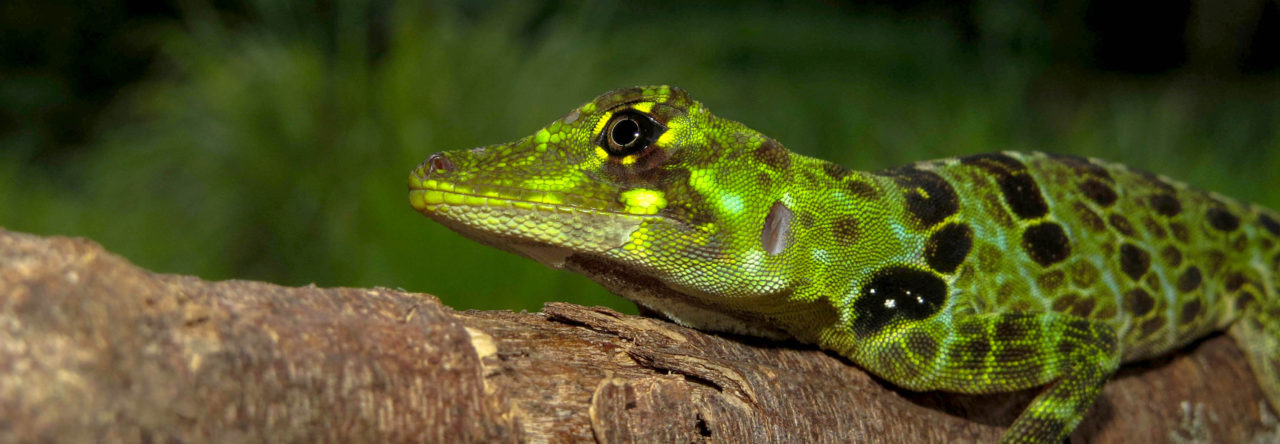 Shelby Irwin, a junior in Michele Johnson’s lab at Trinity University, presented a poster on her summer research in Thomas Sanger’s lab at Loyola University examining hatchling behavior in Anolis sagrei after incubation in thermally stressful conditions. In the lab, Irwin and colleagues incubated A. sagrei eggs under a standard (27°C) and elevated (34°C) thermal regimes to investigate impacts on hatchling phenotype and behavior.
Shelby Irwin, a junior in Michele Johnson’s lab at Trinity University, presented a poster on her summer research in Thomas Sanger’s lab at Loyola University examining hatchling behavior in Anolis sagrei after incubation in thermally stressful conditions. In the lab, Irwin and colleagues incubated A. sagrei eggs under a standard (27°C) and elevated (34°C) thermal regimes to investigate impacts on hatchling phenotype and behavior.
It has been previously noted that thermal stress during development can affect craniofacial development, but Shelby was interested in if there was also an impact on behavior of hatchlings. After hatching, lizards from both the standard and elevated thermal regimes were run through a gambit of exploratory (prey interactions, novel object, and open-field test) and social trials (conspecific and predator interactions). They found that “hot” hatchlings were less aggressive and exhibited less exploratory behaviors. Their findings add to the growing body of research investigating the impacts of a warming world, particularly with regards to sensitive periods in thermally sensitive species.


Leave a Reply